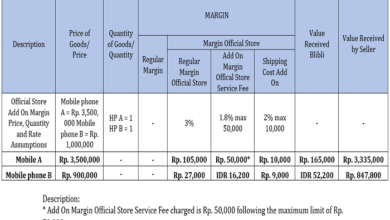Securing Your Parents’ Wellbeing: Insurance for Parents in India

In India, where family ties hold immense value, caring for our parents takes center stage. Ensuring their health and well-being becomes our biggest priority. However, medical emergencies can disrupt even the most robust financial plans. That’s where the crucial role of insurance for parents comes in. It acts as a safety net, shielding your loved ones from the rising costs of healthcare and giving you peace of mind.
Understanding the Need
Escalating Medical Costs: The healthcare landscape in India is witnessing a steady increase in treatment costs. Hospitalization, surgeries, and even routine medical care can put a substantial strain on finances.
Age-Related Health Concerns: As our parents age, they become more susceptible to chronic illnesses and require specialized care. Medical insurance helps manage these expenses efficiently.
Financial Security for You: Unexpected medical bills can drain your savings and impact your own financial stability. Insurance minimizes this risk, allowing you to focus on your parents’ well-being.
Benefits of Insurance for Parents
Hospitalization Coverage: Covers room rent, doctor fees, surgery costs, and other expenses incurred during a hospital stay.
Pre- and Post-Hospitalization Care: Provides coverage for diagnostic tests, medications, and follow-up consultations before and after hospitalization.
Ambulance Cover: Takes care of ambulance charges in case of an emergency.
Daycare Procedures: Covers expenses for specific medical procedures that don’t require overnight stay.
Cashless Treatment: Enables your parents to avail treatment at network hospitals without upfront payments.
Tax Benefits: Premiums paid for health insurance for parents qualify for tax deductions under section 80D of the Income Tax Act.
Choosing the Right Policy
Consider Your Parents’ Age and Health: Senior citizen plans cater specifically to the needs of elders, while regular plans with additional riders can be suitable for younger parents.
Sum Insured: Choose a sum insured that adequately covers potential medical expenses based on your parents’ health and your budget.
Coverage Scope: Compare different plans based on inclusions, exclusions, co-payment options, and waiting periods for pre-existing conditions.
Network Hospitals: Opt for a plan with a wide network of hospitals in your locality for convenient access to healthcare.
Claim Settlement Ratio: Choose an insurer with a good claim settlement ratio to ensure timely payouts when needed.
Additional Tips
Start Early: It’s advisable to buy insurance for your parents while they are healthy to avoid pre-existing disease exclusions.
Disclose Medical History: Be transparent about your parents’ medical history while applying for a policy to avoid claim rejections later.
Review and Renew Regularly: Periodically review the policy and upgrade coverage as needed based on your parents’ changing health requirements.
Conclusion
Securing your parents’ health should be a top priority. By investing in the right insurance plan, you can safeguard their well-being and give them the gift of peace of mind. Remember, choosing the right insurance is not just about financial protection; it’s about demonstrating your love and commitment to their long-term health and happiness.
FAQ
- What are the documents required to buy insurance for parents?
KYC documents of your parents and yourself, medical history declarations, and bank statements.
- Can I buy insurance for my parents if I live abroad?
Yes, some insurers offer specific plans for NRIs to purchase health insurance for their parents in India.
- What happens if my parents have pre-existing medical conditions?
Some plans cover pre-existing conditions after a specified waiting period. Check the policy details for eligibility.
- How can I file a claim for my parents’ insurance?
Inform your insurer and the network hospital. The hospital will then directly settle the claim with the insurer.
- What are some good resources for comparing insurance plans for parents?
Online insurance aggregators, IRDAI website, and financial consultants can help you compare plans and find the best option.




